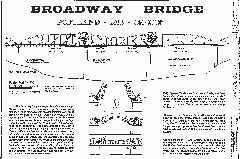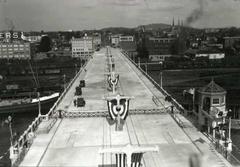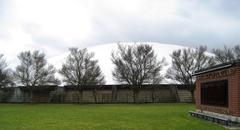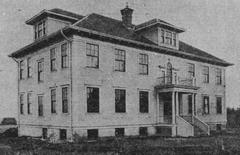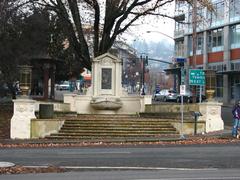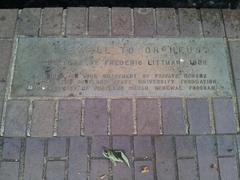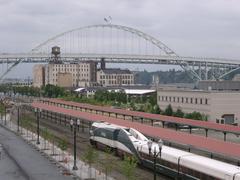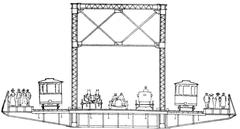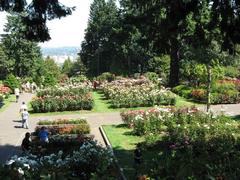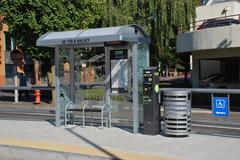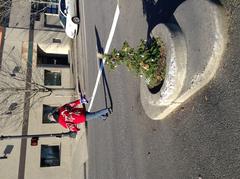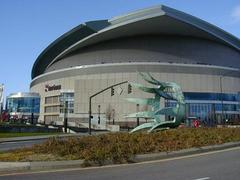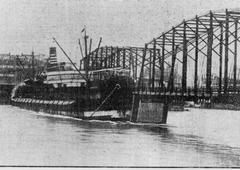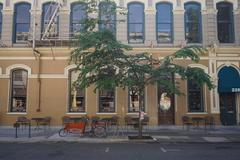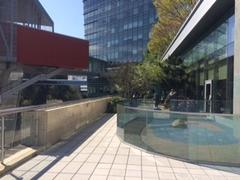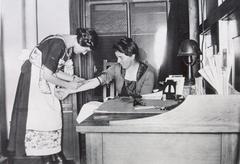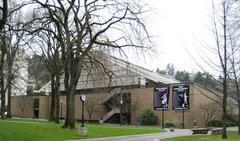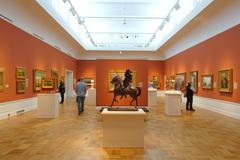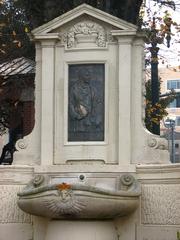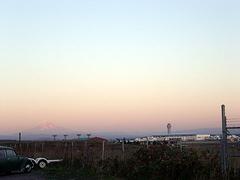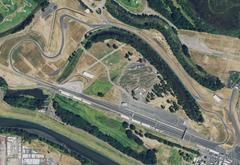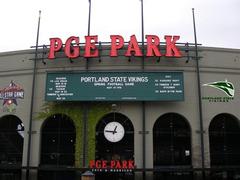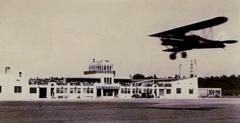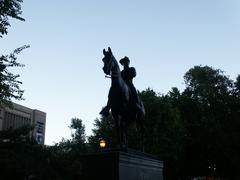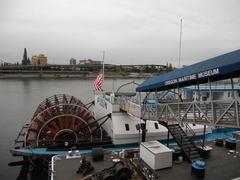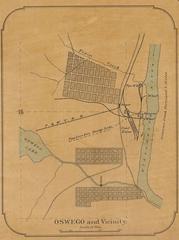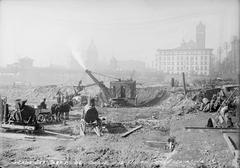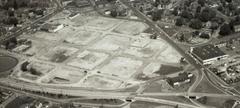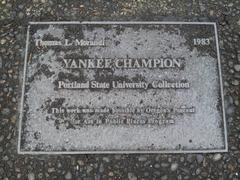King Albert Hall Portland: Visiting Hours, Tickets, and Historical Sites Guide
Date: 04/07/2025
Introduction
King Albert Hall was a significant landmark in Portland, Oregon, embodying the city’s evolving urban landscape, educational history, and cultural heritage. Built in the early 20th century, it began as a residential apartment building with early modern architectural features before becoming an integral part of Portland State University’s (PSU) campus housing. Named in honor of King Albert I of Belgium, the structure represented both international influence and local milestones (PSU Housing Handbook, 2019-2020; everything.explained.today).
For decades, King Albert Hall functioned as a vibrant community hub, fostering student leadership, academic support, and cultural events, while providing affordable accommodations in downtown Portland (PSU Housing Handbook, 2019-2020). Its location enabled easy access to public transportation, local businesses, and cultural venues.
Despite its historical and social relevance, King Albert Hall faced challenges common to century-old buildings—aging infrastructure, costly upgrades, and shifting housing demand. These factors led to its demolition in 2023, closing a chapter in PSU’s history but paving the way for new campus developments (psuvanguard.com). Today, King Albert Hall’s legacy remains through preserved archives, interpretive campus tours, and community memory. This guide offers essential information on its history, significance, visitor resources, and how you can connect with its enduring heritage.
Contents Overview
- Origins and Early Development
- Architectural Significance
- Milestones and Community Impact
- Preservation, Modernization, and Demolition
- King Albert Hall’s Legacy and Visitor Experience
- Practical Information: Visiting the Site Today
- Nearby Attractions
- Frequently Asked Questions (FAQ)
- Resources and Further Reading
Origins and Early Development
Constructed in 1917-1918, King Albert Hall was initially built as a modern apartment building, reflecting Portland’s urban growth in the early 20th century. The building featured 51 three-room and 16 two-room apartments, marketed as “strictly modern” with amenities such as hardwood floors, tile baths, and elevator access (everything.explained.today). Its name honored King Albert I of Belgium, a World War I hero, illustrating the era’s penchant for commemorating international figures.
The building transitioned into PSU’s housing portfolio in 1969, offering accessible, affordable student accommodation and integrating student life into Portland’s urban core (PSU Housing Handbook, 2019-2020).
Architectural Significance
King Albert Hall exemplified early 20th-century residential architecture in Portland. It featured a classic, symmetrical brick façade, robust construction, and a functional layout. The design balanced aesthetic appeal and practicality, with generous windows, communal spaces, and a durable framework (PSU Housing Handbook, 2019-2020, p. 62).
Over the years, the building adapted to changing needs—adding studio apartments, communal lounges, a student coffee shop, and laundry facilities (wikipedia). These features supported a strong sense of community, especially during its time as a PSU residence hall.
Milestones and Community Impact
King Albert Hall played a central role in shaping campus culture and student experience:
- Student Leadership and Community Building: It hosted organizations like the Residence Hall Association (RHA) and National Residence Hall Honorary (NRHH), supporting leadership development and community engagement (PSU Housing Handbook, 2019-2020, p. 7).
- Academic Support: The University Success West center on its ground floor provided tutoring, study spaces, and academic resources (PSU Housing Handbook, 2019-2020, p. 62).
- Cultural and Social Events: The hall regularly hosted multicultural celebrations, wellness workshops, and educational programs, enriching campus life.
Beyond campus, King Albert Hall’s urban location fostered PSU’s mission to integrate intellectual, social, and cultural vibrancy into downtown Portland. Residents benefited from proximity to local businesses, arts organizations, public transportation, and civic spaces (PSU Housing Handbook, 2019-2020, p. 2).
Preservation, Modernization, and Demolition
While King Albert Hall retained much of its original character, the university made periodic upgrades to improve fire safety, accessibility, and communal amenities (PSU Housing Handbook, 2019-2020, p. 62). Despite these efforts, by 2023, renovation costs, hazardous materials (lead, asbestos), and decreased demand for on-campus housing led to the hall’s demolition (King Albert Demo Informational; psuvanguard.com).
The demolition sparked debate about balancing heritage preservation with campus modernization. PSU committed to safe abatement procedures and is now exploring new development opportunities for the site.
King Albert Hall’s Legacy and Visitor Experience
Although the structure is gone, King Albert Hall’s legacy continues through:
- Archival Preservation: PSU Library’s Special Collections and University Archives house photographs, blueprints, and oral histories (PSU Library).
- Interpretive Campus Tours: Walking tours and on-site signage explain King Albert Hall’s history and its role in PSU’s development.
- Community Engagement: Alumni storytelling projects and public forums keep the hall’s memory alive (Travel Portland).
Practical Information: Visiting the Site Today
- Location: Formerly at 1809 SW 11th Avenue, on PSU’s west campus.
- Access: The site is open to the public during campus visiting hours (typically 8:00 AM–6:00 PM daily). No ticket is required.
- Campus Tours: Guided and self-guided tours are available; check PSU’s Visitor Center for schedules.
- Accessibility: The site and campus are wheelchair accessible. For additional needs, contact the Visitor Center.
- Archival Visits: Researchers can access King Albert Hall materials by appointment at the PSU Library’s Special Collections (PSU Library).
Nearby Attractions
Enhance your visit by exploring other downtown Portland highlights:
- Portland Art Museum: Extensive regional and international art collections.
- Pioneer Courthouse Square: Portland’s “living room,” hosting events and markets.
- South Park Blocks: Historic green space adjacent to PSU.
- Powell’s City of Books: World’s largest independent bookstore (52citiesblog.com).
- Pittock Mansion: Iconic early 20th-century mansion.
- Alberta Arts District and International Rose Test Garden: For culture and natural beauty.
Frequently Asked Questions (FAQ)
Q: Can I visit King Albert Hall today?
A: No, the building was demolished in 2023, but the site is open to visitors and included in campus tours.
Q: Are tickets required to visit the site?
A: No, visiting the site or joining campus walking tours is free.
Q: Is the site accessible for people with disabilities?
A: Yes, campus pathways are accessible. For special accommodations, contact PSU’s Visitor Center.
Q: How can I learn more about King Albert Hall’s history?
A: Access digital archives and physical materials at PSU Library’s Special Collections (PSU Library).
Q: Are there events related to King Albert Hall?
A: PSU periodically hosts campus history events. Check Travel Portland and PSU’s website for updates.
Resources and Further Reading
- PSU Housing Handbook, 2019-2020
- King Albert Hall (Portland State University), Everything Explained Today
- King Albert Demolition is Underway, PSU Vanguard
- PSU Library Special Collections and University Archives
- Travel Portland Magazine & Visitor Guide
- 52 Cities Blog: Visiting Portland, Oregon
- King Albert Demo Informational
Plan your visit to Portland State University’s campus and discover the stories that shape its heritage. Engage with archives, join a walking tour, and explore the city’s many cultural attractions for a full experience of Portland’s rich urban history.
